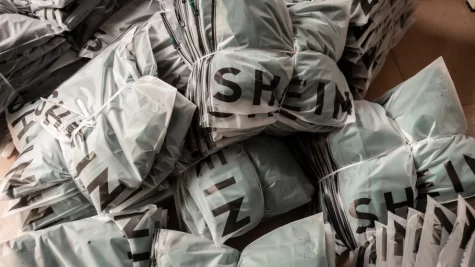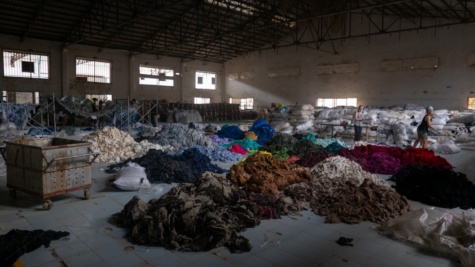
Sienna Taus | Writer & Tyler Pearce | Writer
With the growth of the social media platform Tik Tok, a new kind of celebrity has been created. Forbes states, “macro-influencers are defined as accounts with anywhere from 10,000-50,000 followers and macro-influencers as accounts with 500,000-1 million followers”. Due to the small number of followers needed in order to fit into the niche group, a rise of these macro-infrencers is bound to occur.
It is thought that fast fashion is something that has been unknowingly evolving due to these influencers and their fast impact on the fashion industry. These influencers are known for setting macro-trends.
A Macro-trend is something that is considered “trendy” for a very short period of time (1-2 months). Brands like Shein are able to mass produce these macro-trends with inexpensive products, quickly, so that the millions of people who are influenced on social media can have a way to buy the item. Sophomore, Makena Wood, says she “buys from Shein because it’s cheap” supplying people with all the clothes trending at any moment.
In the past two years, Shein’s revenue has increased 398%. They are one of the most popular clothing brands at the moment, this is due to the fact that they have cute and inexpensive clothes. Junior, Mia Smith, states, “[she] buys from Shein because they are cheap and cute”.
Just to show how popular the brand is, we interviewed 55 random students ranging from ages 14-18. 81.81% of students have purchased from Shein in the past year. These students have all heard about Shein, and claim that they found out about it from the influencers on Tik Tok.
When you take a look at how much waste the brand creates when manufacturing their clothes, the issue is clear.

Shein is known for inevitably packing their clothes in plastic bags. Shein’s mass production factories are located in China, with the brand’s growing population in the United States the ways to ship the products are mainly through airfares. These planes release carbon emissions into the air causing mass air pollution. On top of that, the clothes are known for their poor quality; resulting in abandonment from the clothes which will eventually end up in landfills.

Leave a Reply